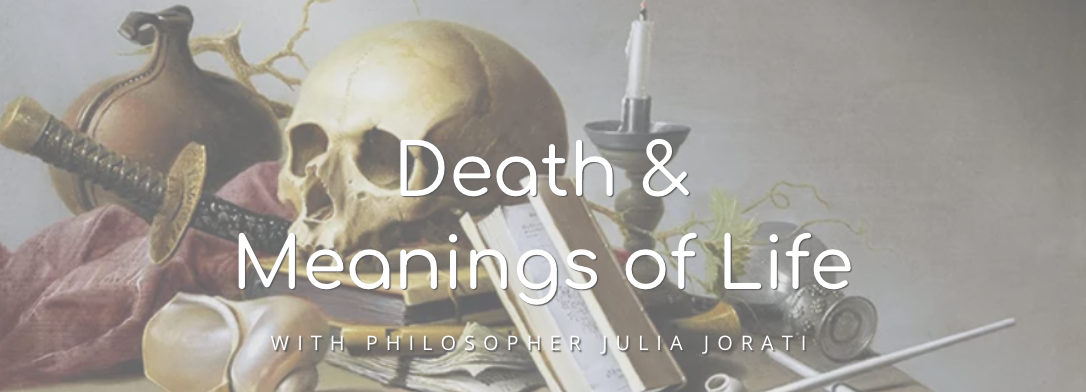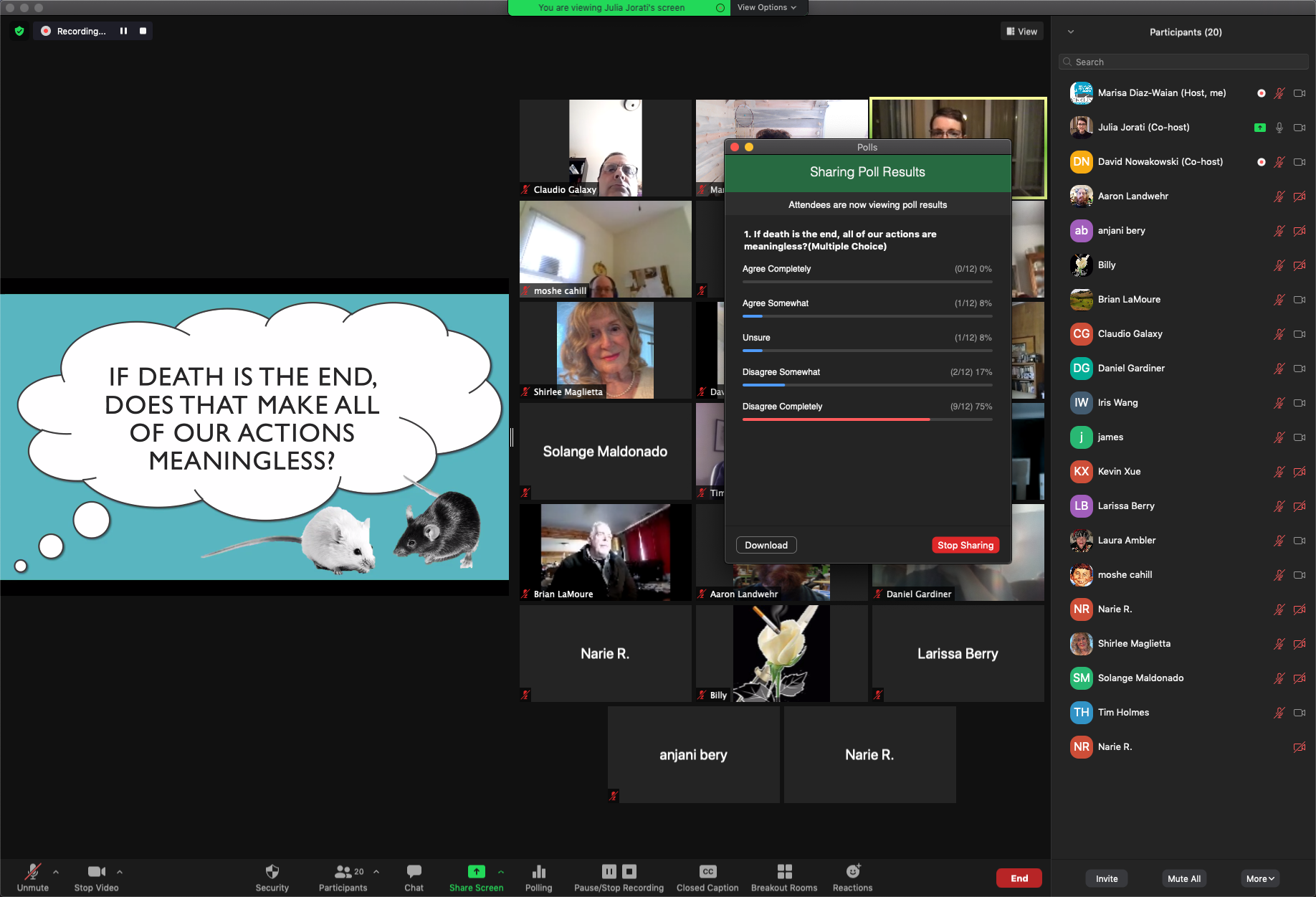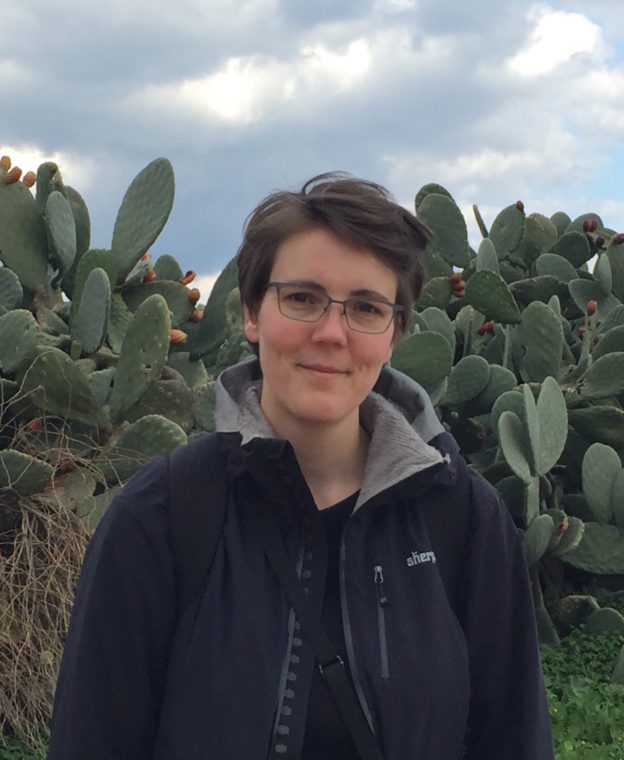


Death and the meaning (or meanings) of life have been topics of fascination and exploration for thinkers of all kinds for centuries. In fact, one of the definitions of philosophy offered by Plato’s Socrates is preparation for death (or less morbidly and more optimistically sounding: learning how to live well so that one can die well).
In this workshop we explored the “goodness” or “badness” of death, the relationship between death and meaning in our lives, and looked at various attitudes toward death and dying. Some questions that guided our philosophical spelunking included:
- Is death bad for the person that dies? Why or why not?
- What significance might death have (or not have) on the value and meaning of our actions in day to day life?
- Should we think about our deaths often? Or is it fruitless to do so?
The Stoics and other ancient philosophers found contemplating our mortality to be of utmost import, advocating a practice known as memento mori (translated in latin as “remember that you must die”). Other thinkers promote similar practices. For example, in early Buddhist texts the term maranasati (translated as ‘remember death’) is frequently employed and Sufis have oft been referred to as “people of the graves” because of their frequent visits to gravesites to ponder mortality.
- What’s the purpose or value of engaging with death in these sorts of ways?
- Could it be an important to key to living full and meaningful lives? And what does this mean?
The workshop looked at these questions and more through the lens of historical philosophy and involved visual presentation, discussion, and group activities.
Videos
(Workshop Introduction & Session Recordings)
Resources
-
Shelly Kagan, Death. Yale University Press 2012
-
Monte Ransome Johnson, “Epicurus’ Cure for Unhappiness,” Wi-Phi Video https://wi-phi.com/videos/epicurus-cure-for-unhappiness/
-
Travis Timmerman, “Symmetry Argument Against the Badness of Death,” Wi-Phi Video https://wi-phi.com/videos/symmetry-argument-against-the-badness-of-death/
-
Kieran Setiya, Midlife: A Philosophical Guide. Princeton University Press 2017
-
Nicolas Bommarito, Seeing Clearly: A Buddhist Guide to Life. Oxford University Press 2020
-
His Holiness the Dalai Lama, Advice on Dying and Living a Better Life, translated by Jeffrey Hopkins. Atria 2002
-
The Departure (American documentary film, 2017, by Lana Wilson)
-
Guided meditation: https://www.youtube.com/watch?v=r4IVO5LLlWI
-
Frederik Kaufman, “Is Death Bad? Epicurus and Lucretius on the Fear of Death.” https://1000wordphilosophy.com/2020/10/02/is-death-bad-epicurus-and-lucretius-on-the-fear-of-death/
About Our Workshop Leader

Julia Jorati is an Associate Professor in the Department of Philosophy at The University of Massachusetts, Amherst. Her main area of research is Early Modern Philosophy — specifically, early modern philosophy of action, metaphysics, ethics, and philosophy of mind. She also dabbles in Medieval Philosophy and Philosophy of Religion. At present, she is particularly interested in philosophical arguments concerning slavery in the 17th and 18th centuries, and the notion of moral necessity in late medieval and early modern moral psychology. Her research thus far has focused mostly on the philosophy of Gottfried Wilhelm Leibniz, though she has also published on other early modern authors.
Thank You’s


Thank you to Humanities Montana and P.L.A.T.O. (Philosophy Learning and Teaching Organization) for helping support our philosophy in the community programs and making events like this possible! This workshop was part of our “Thinking as a Community” project.
